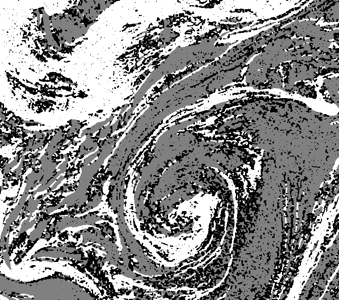¡¡
| Home | Research | Professional Actitivities | Publications | Awards and Honors | Tutorials and Invited Talks | Teaching and Admin |
RESEARCH ACTIVITIES
Research Interests: Machine Learning (e.g., Deep Learning and Transfer Learning), Evolutionary Optimization (e.g. Differential Evolution and Particle Swarm Optimization), Image Processing (e.g., Remote Sensing Image Processing and Automatic Optical Inspection), GPU Computing, Services Computing (e.g., Service Composition), Mobile and Pervasive Computing, etc.
My current research focuses on
Collaborative
Learning and Optimization, i.e., how to synergize machine learning
and intelligent optimization techniques to resolve challenging problems
in which learning and optimization are involved as indispensable and
interwoven tasks.
Research Grants:
-
Research on Theory and Algorithms in Multi-Objective Evolutionary Learning for Submodular Contrained Optimization (2017-2019), National Natural Science Foundation of China (NSFC), £¤220,000 (Co-PI)
-
Long-term Cloud Service Composition (2016-2018), Australia Research Council (ARC) Discovery Project, AU$339,000 (CI)
-
Research grant for the recipient of the 2014 Chinese National 1000 Young Talents Plan,£¤3,000,000 (CI)
-
Novel Adaptive Ensemble Evolutionary Optimization Techniques (2011-2013), National Natural Science Foundation of China (NSFC),£¤200,000 (CI)
-
Investigation of Ensemble Evolutionary Algorithms and Its Applications (2011-2013), Specialized Research Fund for the Doctoral Program of Higher Education (SRFDP), £¤36,000 (CI)
Past Research Projects:
-
Post-reflow defect detection in SMT (Surface-Mounted Technology)
Funding sources: I-VP: Intuitive Vision Programming (MINALOGIC) (French Government Funding), 2009-2012
-
Remote sensing imagery intepretation
Funding sources: Classification of Operational SAR Sea Ice Imagery (NSERC-Discovery Funding), 2007-2012; Variability and Change in the Canadian Cryosphere¨CCanadian Contribution to the State and Fate of the Polar Cryosphere (Environment Canada Funding), 2007-2011; Classification of Operational SAR Sea Ice Imagery (GEOIDE SII Funding), 2006-2008


MAGIC (MAp-Guided Ice Classification) is a software package that interprets remote sensing imagery using advanced computer vision techniques, which feature an innovative segmentation algorithm using probabilistic graphical models to reducesegmentation errors due to signal variations in the range direction and speckle noise.
CURRENT PHD STUDENTS
-
Allan Campbell (co-supervised with A/Prof. Vic Ciesielski)
-
Borhan Kazimipour (co-supervised with A/Prof. Xiaodong Li)
-
Boyu Zhang (co-supervised with Dr. Jeffrey Chan)
-
Chen Jin (co-supervised with Prof. Athman Bouguettaya)
-
Hui Song (co-supervised with Dr. Flora D. Salim)
-
Jonathan Liono (co-supervised with Dr. Flora D. Salim)
-
Lishan Cui (co-supervised with A/Prof. Xiuzhen Zhang)
-
Sajib Mistry (co-supervised with Prof. Athman Bouguettaya)
-
Youhan Xia (co-supervised with Dr. Jeffrey Chan)
